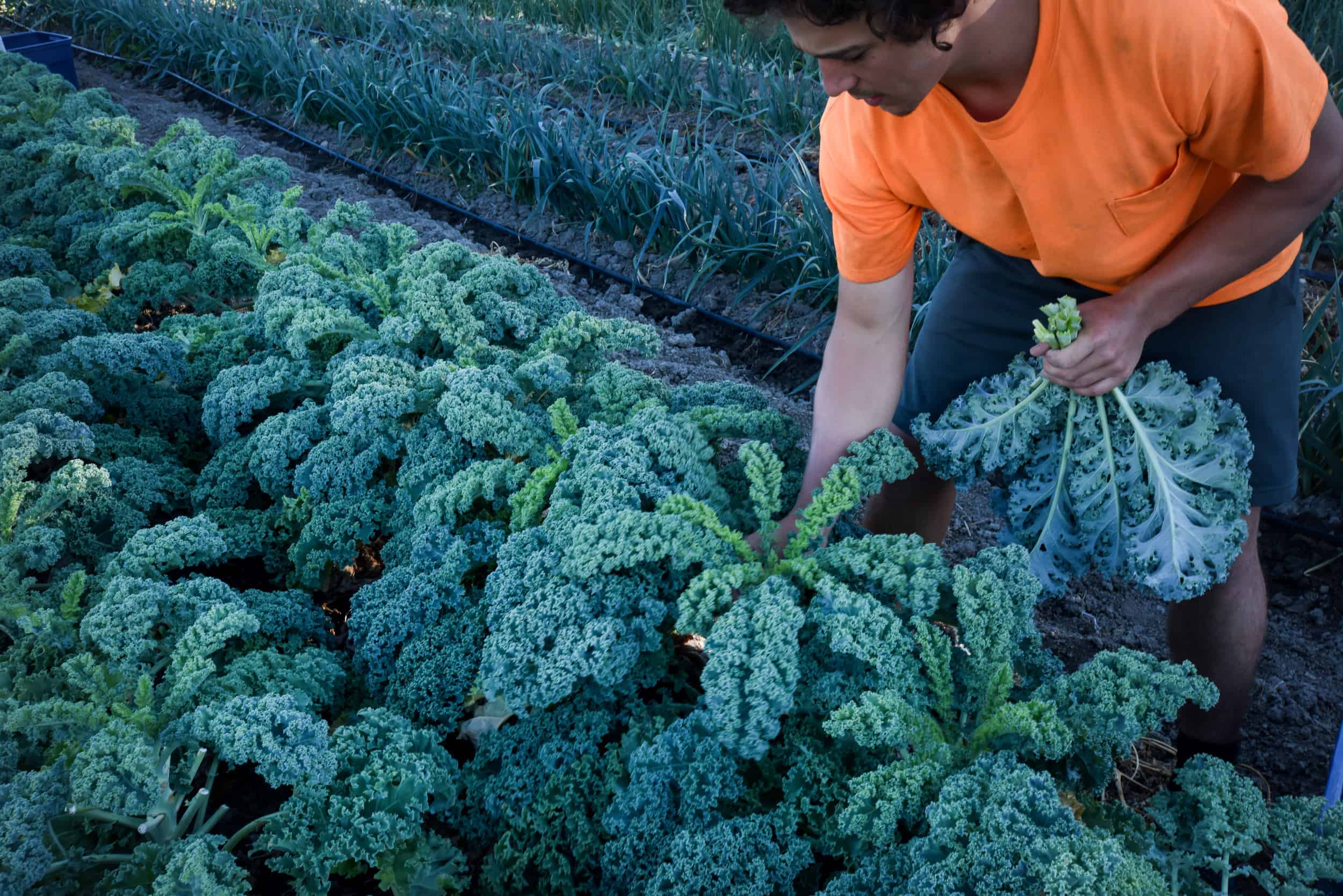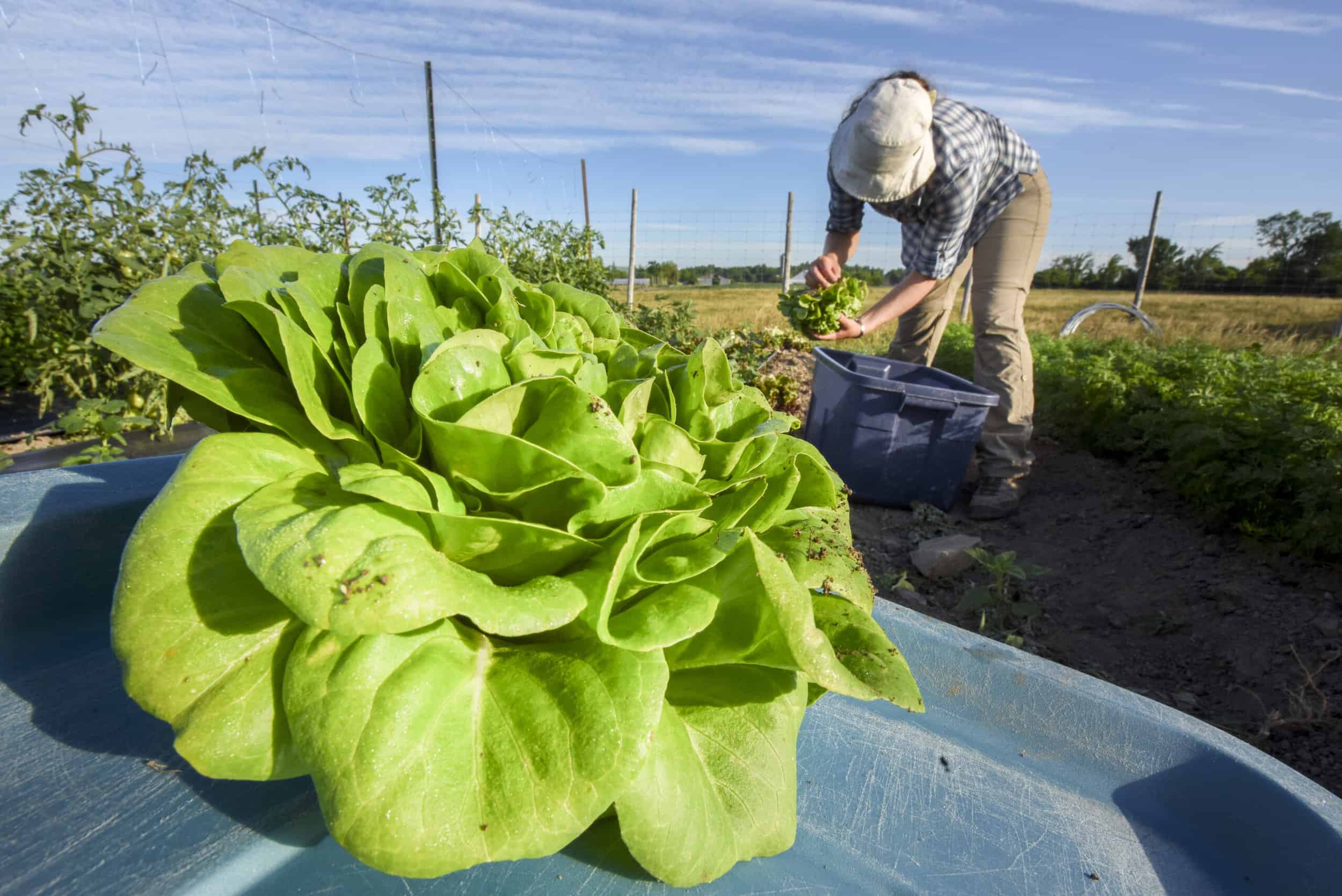The real “farm labour crisis”.
Growing concerns over a “farm labour crisis” or “farm labour shortages” have not taken into account the unique labour conditions on small and mid-sized farms. There is a need to reframe the discussion on the farm labour crisis to better understand how labour shortages are felt and understood within smaller operations compared with large agribusinesses. The voices of agriculturalists committed to creating local, just, and sustainable food systems are too often drowned out by corporate lobbyists.

The twin “farm labour” and “farm income” crises.
The reliance on unpaid, low-paid, and unfree labour, and the absence of standard labour rights for agricultural labourers, makes much of the cry of “farm labour shortages” ring hollow; it is not the quantity of workers, but the precarity of the work, that might better explain the lack of worker participation in the sector.
The farm labour crisis on small and mid-sized farms can only be understood in the context of the farm income crisis. Since 2000, Canadian farm debt has doubled, and “agribusiness corporations that supply fertilizers, chemicals, machinery, fuels, technologies, services, credit, and other materials and services have captured 95% of all farm revenues, leaving farmers just 5%.” It is from this tiny share of farm revenue that farmers have to not only pay themselves, but also their workers.
Reframing the Farm Labour Crisis in Ontario
In April 2020, the NFU-O embarked on a Farm Labour Project to study agricultural labour issues on small and mid-sized farms. The subsequent report and recommendations are based on a mixed methods study that included a survey of 772 farm operators and workers, stakeholder consultations, informal interviews, online group discussions, and a literature review.
The study found that small to mid-sized farms are robust agricultural job creators. In fact, farms under 70 acres were more likely to employ Ontarians than their larger counterparts. The study proved that there is plenty of work on these farms, and plenty of people are attracted to the work and the rural lifestyle. The study also found, however, that there is a shortage of living-wage agricultural jobs which has led to a scarcity of skilled and experienced workers. Without living wages/incomes we are unlikely to attract enough Ontarians willing to acquire the skills and dedicate their lives to agricultural production.
The recommendations arising from the NFU-O Farm Labour Project are clustered in two sections. The first, “Building Farm Employer and Farm Worker Capacity,” suggests measures that farmers, farm organizations, community groups, eaters, and other stakeholders can take to support and grow Ontario’s agricultural workforce. The second, “Municipal, Provincial, and/or Federal Support and Legislation,” provides key policy recommendations directed at elected officials and all levels of government. The implementation of these policies will support the essential work of Ontario’s small and mid-sized farms. The full list of recommendations can be found in the final pages of the report.
If we want to open the doors to living-wage jobs and increase farm incomes in Canadian agriculture without tariffs or other protective market mechanisms, then even more government support is needed. Farm labour grants and wage subsidies, improved access to EI, and ideally a Basic Income are urgently required to ensure farm workers and operators are receiving a decent annual income regardless of their hourly wage, farm earnings, or the length of their season.
Special thanks to all the farm operators, farm workers, and other stakeholders who took time to take the survey, participate in informal interviews, and/or join our online discussions.
I love doing what I do, but the job will continually get harder unless the public learns more about agriculture. There are a lot of issues we need them on our side for, because we don’t have the time or resources to take it all on. At the end of the day these issues affect everybody and the work the NFU-O is doing to educate the public is so important.
– Farm Worker Respondent
Want to learn more about farm labour?
Frequently Asked Questions
The “farm labour crisis” refers to a scarcity of skilled workers in small and mid-sized farms. The NFU-O’s Reframing the Farm Labour Crisis found that there is actually not a shortage of people willing to work on these farms, and that are attracted to the work and the rural lifestyle. But rather this shortage of skilled workers is actually due to precarious working conditions and lack of standard labour rights.



